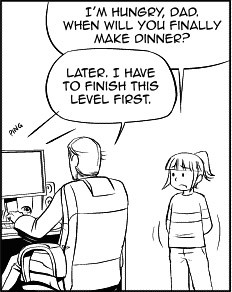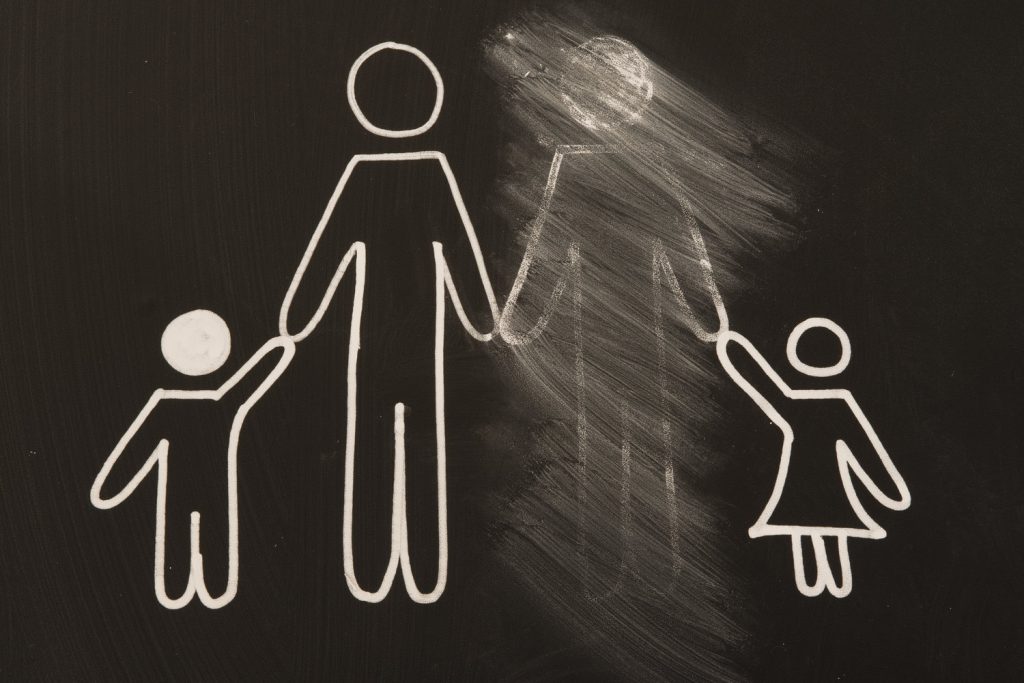If you’re the child of an emotionally unavailable parent, you may be feeling a range of emotions. Including sadness, anger, and frustration. It can be very difficult to grow up with one or more emotionally unavailable parents.
This type of parenting can have negative consequences for children’s development and future relationships. In this article, we will explore the signs of emotionally unavailable parenting, as well as some tips for coping with it.
Contents
- 1 Understanding Emotionally Unavailable Parents
- 2 Know The Traits Of Emotionally Unavailable Parents
- 3 Evaluating Emotionally Unavailable Parenting
- 4 Coping With Emotionally Unavailable Parenting
- 5 Talking To a Professional
- 6 Experts’ View On Emotionally Unavailable Parenting
- 7 Conclusion
- 8 A Word From Therapy Mantra

Emotionally unavailable parents are those who are not able or willing to emotionally connect with their children. They may be physically present but emotionally absent. And it can cause a lot of problems for the child.
There are different types of such unavailable parents, including the distant parent, the critical parent, and the enmeshed parent. Each type has its own set of traits that can make life difficult for the child.
Distant Parents
Distant parents are emotionally unavailable because they are physically absent. They may be working long hours, traveling a lot, or living in another city or country. The child may never see them or only see them occasionally.
Example: Maria’s parents are distant. They work long hours and travel a lot for work. So Maria only sees them a few times a year. She always feels like she has to entertain them or else they’ll be bored. When she was younger, she would try to please them by doing well in school and being quiet and obedient. Now that she’s older, she just avoids them.
Critical Parents
Critical parents are emotionally unavailable because they are always critical and never supportive. They may never say anything positive to their child and always find something to criticize. This can be very damaging to the child’s self-esteem.
Example: Brian’s parents were critical of everything he did. No matter what he did, they would find something to criticize. His dad was always quick to point out when he made a mistake. And his mom would constantly tell him that he wasn’t good enough. This led Brian to develop low self-esteem and insecurity.
Enmeshed Parents
Enmeshed parents are emotionally unavailable because they are too involved in their child’s life. They may be overly involved in their child’s schoolwork or personal life. And they may not give the child enough space to grow up and develop his or her own identity.
Example: Janine’s parents were enmeshed with her. They were always asking what she was doing and who she was hanging out with. They didn’t want her to have any privacy or independence. This made it difficult for Janine to develop into her person.
Many factors govern emotionally unavailable parenting. Some of these factors include the parents’:
Emotional issues: If the parents are dealing with their emotional issues, they will likely be emotionally unavailable to their child.
Mental health issues: If the parents have mental health issues, they will likely be emotionally unavailable to their children.
Physical health issues: If the parents have physical health issues, they will likely be emotionally unavailable to their children.
Socioeconomic status: If the parents are from low socioeconomic status, they will likely be emotionally unavailable to their child.
Parenting style: If the parents have a controlling or manipulative parenting style, they will likely be emotionally unavailable to their child.
Time constraints: If the parents are busy with work or other commitments, they will likely be emotionally unavailable to their child.
Lack of parenting skills: If the parents do not have good parenting skills, they will likely be emotionally unavailable to their child.
Relationship with the child’s other parent: If the parents are not close to the child’s other parent or if they do not get along, they will likely be emotionally unavailable to their child.
The culture or society the parent lives in: If the culture or society the parent lives in does not value emotional expression, they will likely be emotionally unavailable to their child.
 Each type of emotionally unavailable parent has its own set of traits that can make life difficult for the child. However, some common traits apply to all types of emotionally unavailable parents. These include the following:
Each type of emotionally unavailable parent has its own set of traits that can make life difficult for the child. However, some common traits apply to all types of emotionally unavailable parents. These include the following:
On Emotional Level
They are unavailable emotionally: Emotionally unavailable parents are not willing or able to give their child emotional support. They may be physically present but they are not emotionally available. Consequently, it can be very damaging to the child.
- Example: My father was always critical of me and he never gave me any emotional support.
- Example: My mother was always working and she never had time for me. I felt like I was invisible to her.
- Example: I never felt like my mother cared about me.
- Example: I never felt like my father was there for me when I needed him.
They are unavailable to understand: Emotionally unavailable parents are not willing or able to understand their children. They may not be interested in understanding their child’s feelings. Or they may not be able to understand without judging the child.
- Example: My father never understood me and he would always criticize my feelings.
- Example: My mother never listened to me and she would always criticize what I said.
On Other Levels
They are unavailable mentally: Emotionally unavailable parents may be physically or emotionally absent but they are also unavailable mentally. This means that they are not willing or able to have a mental connection with their child.
Example: My father was always working and he was never home, so we never had any conversations.
They do not set boundaries: Emotionally unavailable parents do not set boundaries for their children.
Example: My father was always telling me what to do and he never gave me any space.
They are controlling and manipulative: Emotionally unavailable parents are often controlling and manipulative.
Example: My mother always tried to control me and she would never let me do what I wanted.
They are too involved in their own life: Emotionally unavailable parents are too involved in their own life and they are not available to their children.
- Example: My mother was always busy with her work and she never had time for me.
- Example: My father was always unavailable because he was dealing with his problems.

There are many challenges that children of such parents face. Some of these challenges include the child:
Never feels loved or valued: If the parents are emotionally unavailable, they will likely not be able to give their child love and validation.
Always feels like they’re doing something wrong: If the parents are emotionally unavailable, they will likely be very critical and judgmental.
Never feels safe or secure: If the parents are emotionally unavailable, they will likely not be able to provide a stable and safe environment for their child.
Always feels anxious and stressed: If the parents are emotionally unavailable, they will likely create an unhealthy environment for their child where anxiety and stress are common.
Has difficulty forming relationships: If the parents are emotionally unavailable, they will likely not be able to model healthy relationship skills for their child.
Has difficulty trusting people: If the parents are emotionally unavailable, they will likely not be able to teach their child how to trust other people.

There are many negative outcomes of emotionally unavailable parenting. Some of these outcomes include, the child becomes:
An adult who is also emotionally unavailable: If the child never learned how to attach to and trust their parents, they will likely have difficulty attaching to and trusting other people as adults.
A victim of emotional neglect: If the child never learned how to express their emotions, they will likely struggle with emotional regulation as an adult.
Depressed or anxious: If the child never learned how to cope with their emotions, they will likely become depressed or anxious as adults.
Develops addictions: If the child never learned how to deal with their emotions, they may turn to addictions to self-soothe.
The child has difficulty forming healthy relationships: If the child never learned how to have a healthy relationship with their parents, they will likely have difficulty forming healthy relationships as adults.
There are some upsides of emotionally unavailable parenting. Some of these upsides include, the child becomes:
Independent and self-sufficient: If the child never learned how to rely on their parents, they will likely become very independent and self-sufficient adults.
High achiever: If the child never felt like they were good enough for their parents, they will likely work hard to be a high achiever as an adult.
Resilient: If the child never learned how to deal with their emotions, they will learn how to cope with difficult situations as an adult.
Resourceful: If the child never had access to emotional support from their parents, they will learn how to find support from other sources as adults.
NOTE: The upsides of emotionally unavailable parenting should not be taken to imply that parents should be emotionally unavailable. The negative outcomes of emotionally unavailable parenting are too great and children deserve to have healthy and supportive relationships with their parents. However, if you are a parent who is struggling to connect with your child, there are therapies available that can help. Contact a therapist in your area to find out more.
There are many ways that children of such parents can cope with their situation. Some of these methods include:
Talking to a therapist: If you are struggling with the emotional unavailability of your parents, talking to a therapist can be very helpful. They will be able to provide you with guidance and support.
Building healthy relationships with other adults: If you do not have a healthy relationship with your parents, it is important to build healthy relationships with other adults. This can include friends, mentors, and teachers.
Expressing your emotions: If you struggle to express your emotions, it is important to find ways to do so. This could include writing, painting, or talking to a friend.
Creating a stable and safe environment: If you do not feel safe or secure in your home, it is important to create a safe space for yourself. This could include finding a supportive friend or relative to stay with, creating a safety plan, or attending therapy.
Things You Should Say To Your Kids Every day
There are many things you should say to your kids every day. Some of these things include:
- I love you: Tell your kids that you love them every day.
- I’m sorry: Apologize to your kids when you make a mistake.
- Thank you: Thank your kids for everything they do.
- I’m here for you: Let your kids know that they can come to you with anything.
- You can do it: Encourage your kids and give them positive reinforcement.
Talking To a Professional
If you are the child of emotionally unavailable parents, it is important to talk to a professional. Some of the professionals that you could speak with include:
Therapists: Therapists can help such children understand their situation and deal with any emotions they may be experiencing.
Counselors: Counselors can help such children build healthy relationships with other adults.
Psychologists: Psychologists can help such children understand and cope with their emotions.
Addiction specialists: Addiction specialists can help children who may be struggling with addiction.
Family doctors: Family doctors can help children get the help they need.
If you are the child of such parents, it is important to find a professional who can help you. Talking to someone who understands what you are going through can be very helpful. You do not have to struggle with this on your own.
There are many therapies available for children of such parents. Some of these therapies include:
Therapy: Therapy can help these children understand their situation and deal with any emotions they may be experiencing.
Counseling: Counseling can help these children build healthy relationships with other adults.
Psychotherapy: Psychotherapy can help these children understand and cope with their emotions.
Family therapy: Family therapy can help these children build healthy relationships within their families.
Skills You Learn In Therapy
When you are in therapy, you learn many skills that can help you. Some of these skills include:
Communication skills: Therapy can help children of such parents learn how to communicate effectively.
Problem-solving skills: Therapy can help children of such parents learn how to solve problems effectively.
Coping skills: Therapy can help children of such parents learn how to cope with their emotions.
Relationship skills: Therapy can help children of such parents learn how to have healthy relationships.
Many experts believe that emotionally unavailable parenting is one of the leading causes of addiction and mental health problems in children.
“Emotionally unavailable parents can be a major contributor to kids’ emotional struggles. They may have difficulty regulating their emotions, which can lead to problems with impulse control, substance abuse or other risky behaviors.”
-Dr. Joseph Lee, Director of the Hazelden Betty Ford Foundation Youth and Family Program
“The impact of emotionally unavailable parents is far-reaching. These are the children who grow up feeling like they’re not good enough or that they can’t rely on anyone for support.”
-Dr. Sue Johnson, author of “Love Sense: The Revolutionary New Science of Romantic Relationships”
Case Study
Nina is a child of emotionally unavailable parents. She has struggled with addiction and mental health problems throughout her life. When Nina was younger, she would often get into fights with her classmates. She would never feel good about herself and she always felt like she was the wrong one. It wasn’t until Nina went to rehab that she realized how much her parents’ absence had affected her. Nina is now in therapy and she is working on building healthy relationships with other adults. She knows that it will be a long road, but she is determined to get better.
Conclusion
Emotionally unavailable parents can be very damaging to children. If you are a child of an emotionally unavailable parent, it is important to seek help and coping mechanisms. Furthermore, experts believe that emotional unavailability is one of the leading causes of addiction and mental health problems in children, so it is important to get help if you are struggling. There are many helpful resources available to you, including therapy and support groups. Remember that you are not alone in this struggle and there is hope for healing.
A Word From Therapy Mantra
Your mental health — Your psychological, emotional, and social well-being — has an impact on every aspect of your life. Positive mental health essentially allows you to effectively deal with life’s everyday challenges.
At TherapyMantra, we have a team of therapists who provide affordable online therapy to assist you with issues such as depression, anxiety, stress, workplace Issues, addiction, relationship, OCD, LGBTQ, and PTSD. You can book a free therapy or download our free Android or iOS app.


